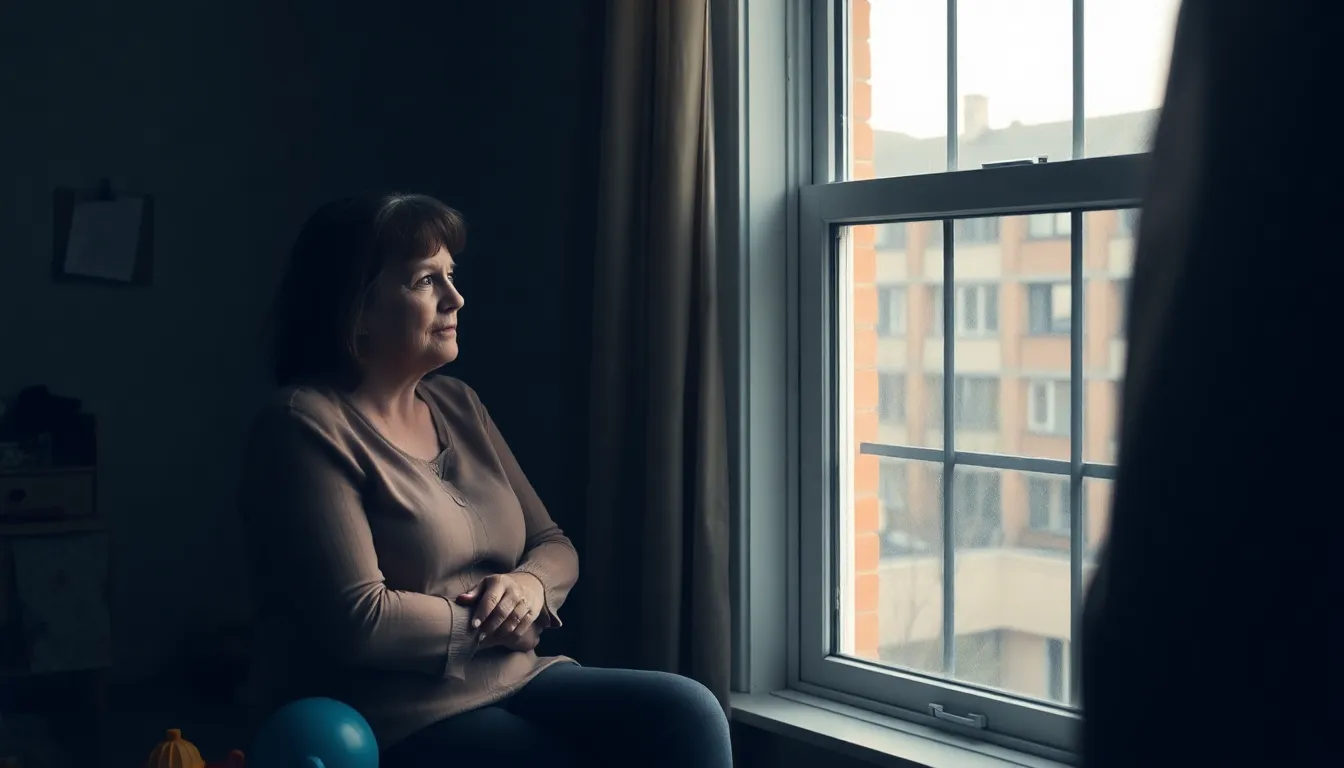A California Landlord Accused of Evicting Child Care Provider Settles Discrimination Complaint in a landmark $80,000 agreement, marking a crucial early enforcement action under a six-year-old state anti-discrimination law. This resolution not only provides financial redress but also underscores the critical need to protect essential in-home child care services and deter future discriminatory practices.
Key Implications
- Enforcement Precedent: The $80,000 settlement establishes a significant precedent for enforcing California’s anti-discrimination law protecting in-home child care providers, demonstrating active pursuit by the Civil Rights Department and deterring future unlawful landlord practices.
- Protecting Child Care Services and Providers: This case highlights the profound personal and community impact of discrimination, which caused a one-month service interruption for eight families and contributes to the persistent 30% decline in California’s licensed child care homes, underscoring the vital need for robust protections.
- Consequences for Discriminatory Practices: Beyond financial compensation for damages, the settlement includes mandatory fair housing training for the landlord, signifying that discrimination carries both monetary penalties and educational requirements designed to prevent future unlawful acts.

$80,000 Settlement Enforces Anti-Discrimination Law for Child Care
A significant legal development has unfolded in California, setting a precedent for housing discrimination cases involving in-home child care providers. A California landlord, Jose Escamilla Sanchez, has agreed to an $80,000 settlement. This agreement resolves a complaint filed by Mariam Younathan, a child care provider. The settlement also mandates fair housing training for the landlord. This marks a crucial early enforcement action. It falls under a state law enacted six years ago. This law specifically aims to protect in-home child care providers from discrimination.
The resolution of this case underscores California’s commitment to upholding fair housing principles. It demonstrates active measures to safeguard essential community services. The California Civil Rights Department spearheaded this settlement. Their efforts highlight the proactive stance against housing discrimination. This outcome provides financial redress and educational requirements. It reinforces legal protections for a vital segment of the workforce.
A Landmark Step in Protecting Child Care Providers
Six years ago, California enacted a progressive state law. Its primary purpose was to protect in-home child care providers from discrimination. This legislation recognized the critical role these providers play. They offer essential services to countless families across the state. The law sought to prevent landlords from unfairly denying housing or evicting tenants due to their child care operations.
This recent settlement is one of the first enforcement actions under this important law. It signals that the California Civil Rights Department is actively pursuing such cases. The settlement achieved by the department validates the protections outlined in the statute. It also sends a clear message to property owners. Discriminatory practices against home-based businesses, particularly child care, will not be tolerated. The resolution of this specific California Landlord Accused of Evicting Child Care Provider Settles Discrimination Complaint illustrates the practical application of this law.
Such legal protections are vital for several reasons. Child care providers often face unique housing challenges. Landlords might express concerns about increased traffic or liability. These concerns, if leading to discrimination, directly contradict fair housing principles. Protecting these providers ensures broader access to child care services. This stability benefits both providers and the families who rely on them.
Financial Redress and Educational Mandate for the Landlord
The core of the settlement involves a substantial financial component. Jose Escamilla Sanchez paid $80,000 in damages to Mariam Younathan. This sum addresses the direct financial losses and emotional distress. It serves as compensation for the alleged discrimination experienced by the child care provider. Such an amount signifies the serious nature of housing discrimination claims. It reflects the potential impact on individuals’ livelihoods.
Beyond the financial payment, the settlement includes a crucial educational requirement. The landlord is mandated to undergo fair housing training. This training is designed to educate property owners on their legal obligations. It covers various aspects of federal and state anti-discrimination laws. The goal is to prevent similar incidents from occurring in the future. Education empowers landlords to manage their properties lawfully and equitably. This provision ensures a deeper understanding of fair housing principles.
It is important to note the landlord’s attorney’s statement. The attorney affirmed that Jose Escamilla Sanchez denies any wrongdoing. The settlement was pursued to avoid incurring additional legal costs. This is a common aspect of civil litigation. Parties often agree to settlements to mitigate ongoing expenses and uncertainties. Regardless of the landlord’s denial, the settlement terms remain legally binding. They serve as a clear consequence for the discrimination complaint.
The enforcement action addresses not just the specific parties. It also sheds light on broader societal needs. Access to quality, affordable child care remains a significant challenge for many families. Ensuring that in-home providers can operate without discriminatory barriers is essential. This contributes positively to addressing pressing childcare needs and community well-being. By supporting these providers, communities strengthen their overall support systems.
Setting a Precedent for Anti-Discrimination Enforcement
This $80,000 settlement carries substantial weight beyond the immediate parties involved. It establishes a significant precedent for the enforcement of anti-discrimination laws. For other in-home child care providers, this outcome offers reassurance. It confirms that legal avenues exist to challenge discriminatory housing practices. They now have a clearer understanding of their protected rights.
The settlement is designed to deter future discriminatory practices by landlords. It sends a powerful message across the housing industry in California. Property owners must comply with the state’s fair housing laws. Ignoring these regulations can lead to substantial financial penalties and mandatory educational requirements. This acts as a strong incentive for compliance. The legal consequences are now tangibly demonstrated through this case.
The California Civil Rights Department’s successful action reinforces its role. It stands as a vigilant protector of civil rights within the state. Their efforts ensure that laws enacted to promote fairness are not just theoretical. They are actively enforced with tangible results. This commitment strengthens the framework of protections for vulnerable groups.
Ultimately, the resolution of this California Landlord Accused of Evicting Child Care Provider Settles Discrimination Complaint showcases judicial effectiveness. It highlights the importance of fair housing training and significant financial settlements. These tools are critical in combating discrimination. They foster an environment where in-home child care providers can operate without fear of prejudice. This ensures access to vital services for California’s families.

Eviction Threat Causes 1-Month Service Interruption for 8 Families
The attempted eviction of Mariam Younathan, a dedicated child care provider, sparked a significant crisis for her business and the community she served. This action directly resulted in a one-month service interruption, profoundly affecting eight families who relied on her essential services. The severe personal and financial distress experienced by Younathan and these parents underscores the critical impact of housing discrimination, leading to the California Landlord Accused of Evicting Child Care Provider Settles Discrimination Complaint.
Mariam Younathan had operated her child care business successfully for eight years, consistently paying her rent on time. Despite this long-standing, reliable tenancy, her landlord issued an ultimatum. He demanded she cease providing child care services or face eviction. This threat emerged less than three months after his initial demand, plunging Younathan into significant turmoil.
Profound Personal and Financial Toll
The eviction threat inflicted a profound emotional and financial toll on Mariam Younathan. She reported experiencing severe anxiety and panic attacks as she navigated the uncertainty of her livelihood and home. Her child care business was not merely a job; it represented her primary source of household income. This income was crucial for supporting her 84-year-old father and her college-age daughter.
The sudden instability jeopardized her ability to provide for her family, highlighting the critical role her business played in their daily lives. Such discrimination against home-based businesses can have devastating effects on providers and their dependents. The distress she faced extended beyond mere financial worry, impacting her mental and physical well-being significantly.
Disruption for Dependent Families
The one-month service interruption caused immense disruption for the eight families dependent on Younathan’s child care. Parents like Lynn Sherman relied heavily on her services, sometimes needing 10 to 11 hours of daily care for her son. This demonstrates the indispensable nature of in-home child care for working families. Without Younathan’s reliable service, these families faced immediate and daunting challenges in securing alternative arrangements.
The uncertainty surrounding Younathan’s business forced some families to seek permanent alternative child care solutions. This loss of established care networks often leads to additional stress and financial burdens for parents. The incident underscores the fragility of child care access when providers face unexpected challenges. It also reveals how a single act of discrimination can ripple through an entire community. Understanding these broader challenges is crucial for policymakers. Why we lack key data for informed decisions in childcare often obscures these profound community impacts.
Operational Hurdles and Lingering Effects
Even after resolving the immediate threat, Younathan faced significant operational hurdles. The one-month delay in reopening her child care business at her new home was not arbitrary. It was a direct consequence of the required inspection and license renewal processes. These administrative steps, while necessary, further extended the period of service interruption for families. This also prolonged Younathan’s own financial recovery.
The period of closure compounded the difficulties for Younathan, who needed to navigate new regulations alongside personal distress. Such logistical challenges can be substantial barriers for small business owners, especially those providing essential services from their homes. Ensuring robust support systems for these providers is vital. It allows them to maintain continuity for the families who depend on them. Efforts to retain essential educators are sometimes linked to support for childcare provision. Oklahoma schools offering free child care to retain teachers showcases innovative approaches to address such needs.
Protecting Home-Based Child Care
The case of Mariam Younathan highlights the critical importance of protecting home-based child care providers from housing discrimination. The settlement reached in the California Landlord Accused of Evicting Child Care Provider Settles Discrimination Complaint sends a clear message. Landlords cannot discriminate against tenants operating licensed child care businesses in their homes. Such discrimination not only harms individual providers but also diminishes the availability of vital community services.
The profound consequences experienced by Younathan and the eight families serve as a powerful reminder. Policies must ensure a stable environment for home-based child care. This helps to safeguard a crucial component of the economic and social fabric. It also ensures access to essential care for countless working parents. The financial and emotional costs of displacement are simply too high for both providers and families. The broader economic implications of accessible childcare are often under-discussed. Education based on income highlights Cambridge’s childcare puzzle, pointing to systemic challenges that require thoughtful solutions.

81 Discrimination Complaints Amidst 30% Decline in Child Care Homes
Despite a state law enacted six years ago, in-home child care providers in California continue to encounter significant housing discrimination. So far this year, the Child Care Law Center has received 81 complaints from providers reporting discrimination or unlawful landlord requirements. This persistent challenge directly exacerbates a prior 30% decline in licensed facilities, hindering vital services for working families across the state.
These 81 complaints highlight a systemic issue. Landlords often impose restrictions or outright refuse to rent to individuals operating in-home daycares. This happens even though legal protections exist to prevent such discriminatory practices. The intent of these laws is to encourage the operation of family child care homes, which are crucial for community infrastructure.
The Lingering Impact of Housing Discrimination
The continued prevalence of housing discrimination severely limits the availability of child care options. When providers face eviction threats or unreasonable demands, they are often forced to close their operations. This creates significant gaps in local child care capacity, impacting parents seeking affordable and accessible services.
Such discrimination makes an already dire situation worse. Many families rely on in-home child care for its flexibility and personal environment. Disruptions due to housing issues have a ripple effect throughout communities. They affect parental employment, child development, and local economic stability.
A Fragile Recovery and Persistent Challenges
The landscape of child care homes in California has been vulnerable for years. There was a significant 30% drop in licensed child care homes statewide following the 2008 housing market collapse. This decline left many areas with insufficient child care options, creating long-term challenges.
More recently, recovery has been minimal. Data from 2021 to 2023 shows only a 0.3% increase in the number of family child care homes. This nearly stagnant growth indicates a sector struggling to rebound. The ongoing housing discrimination directly impedes any meaningful recovery, pushing providers out of the market.
This slow recovery underscores a critical shortage of child care. Many communities lack enough licensed facilities to meet demand. The added pressure of discriminatory housing practices makes it incredibly difficult for new providers to emerge or for existing ones to sustain their operations. This directly impacts families seeking quality care for their children.
Understanding Legal Protections for Child Care Providers
A state law specifically designed to deter landlord discrimination against in-home child care providers was enacted six years ago. This legislation aimed to protect providers and foster the growth of family child care homes. It recognizes the essential role these businesses play in supporting the workforce and children’s development.
Crucially, the state law also forbids cities and counties from imposing business fees or zoning permits for using a property for in-home daycare. This provision removes significant financial and bureaucratic barriers. It was intended to make it easier for individuals to establish and maintain child care services in their homes.
Despite these clear legal protections, the high number of complaints highlights a gap. Providers still face unlawful requirements and discrimination, indicating either a lack of awareness of the law or insufficient enforcement. This means the legislative intent to support child care providers is not always translating into real-world protection.
The Broader Socioeconomic Implications
The critical shortage of accessible child care has wide-ranging socioeconomic consequences. Parents, particularly mothers, often face difficult choices about employment when child care is scarce or unaffordable. This can lead to reduced workforce participation and significant financial strain on families, impacting their ability to climb socioeconomic ladders or even maintain stability. Addressing these disparities is crucial for broader income-based educational access and opportunities.
The situation also points to a broader challenge in understanding the scope of the problem. Without better collection and analysis, it is hard to make informed decisions on childcare policies. Every instance of discrimination, such as the recent case where a California landlord accused of evicting a child care provider settles a discrimination complaint, reinforces the urgent need for action.
Ensuring that in-home child care providers can operate without fear of housing discrimination is vital. It supports working families, boosts local economies, and helps retain essential personnel in various sectors. For example, some states are exploring strategies for teacher retention through child care benefits. Robust enforcement of existing laws and increased awareness among landlords and providers are necessary steps to safeguard these invaluable services.
Featured image generated using Flux AI
KQED: “California Landlord Accused of Evicting Child Care Provider Settles Discrimination Complaint”
